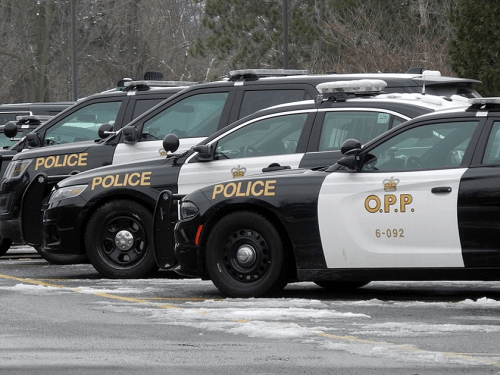
9.25.19 – Simcoe Reformer – Monte Sonnenberg
Changes to the county bylaw governing false alarms should be ready for Norfolk council’s consideration in December.
The new bylaw will put the onus on monitoring companies to verify that an alarm is legitimate before police arrive. As it stands, more than 90 per cent of these alarms are false and represent a significant drain on police resources.
Dennis Travale, chair of Norfolk’s Police Services Board, is taking the lead on the file. Travale ran the proposed changes by the board Sept. 4. Norfolk council agreed to the review Sept. 17.
“If we dramatically reduce calls for service, hopefully our (policing) fees will drop,” Travale told council last week. “But there is no guarantee of that.”
He laid out a timetable for a revised bylaw at Wednesday’s meeting of the board.
At that meeting, Insp. Joe Varga, head of the Norfolk OPP, said the local force will continue sending officers to investigate alarms regardless of what the new bylaw says. Varga said the OPP risk liability problems if they don’t.
If approved, the revised bylaw will encourage monitoring companies to make their alarm systems more reliable. The fine for false alarms has yet to be determined. But with the OPP billing Norfolk nearly $190 per service call, Travale says that would be a good place to start.
Travale affirmed Varga’s contention that police must respond to alarms regardless of their veracity.
“There is no intention to change that in any way, shape or form,” he said. “The intention is to determine whether the call is a good one.”
Norfolk County is following the lead of Toronto police, who, beginning in September 2018, only investigate verified alarms. Verification involves an affirmation by an audio device, a video camera, an eyewitness or the multiple-zone activation of an alarm system within a complex.
Travale said the Toronto approach has withstood rigorous legal scrutiny. Varga mentioned Wednesday that OPP management in Orillia is considering a similar policy in all its jurisdictions.
False alarms arise for a number of reasons. These include high winds, thunderstorms and power surges. Pets and mice set off alarms while other systems are poorly installed and activate at the slightest vibration.
Norfolk’s community services department is responsible for documenting false alarms and issuing fines. The county charges $45 to register a security system. Property owners and businesses are allowed one false alarm before the fines kick in.
For registered alarm owners, the first fine totals $75. For owners of unregistered systems, fines start at $100. Fines increase for each additional offence. Nearly 110 alarm systems are registered with the county.
Nikki Slote, Norfolk’s manager of administrative and client services, recently reported more than 270 at-fault false alarms in Norfolk so far in 2019.
This compares with 250 last year and 229 in 2017. Slote estimated there could be as many as a dozen alarm monitoring companies doing business in Norfolk.
Slote told the police board that staying on top of the situation is time-consuming and requires a lot of paperwork. Shifting the onus to alarm-monitoring companies, she added, would streamline the process and ease the workload.
Travale said he hopes this approach catches on provincewide. If the OPP can reduce calls for service across Ontario, the force should be able to pass along the savings to its member municipalities, he said.
MSonnenberg@postmedia.com
